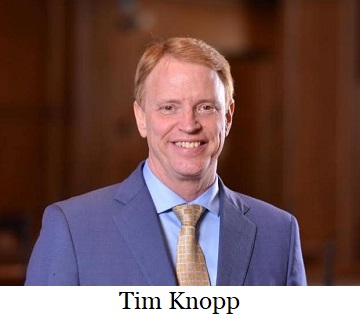This ruling limits absolute power and lawlessness
Two years ago, the Oregon Department of Environmental Quality (DEQ) adopted the Climate Protection Program, which creates limits on greenhouse gas emissions from oil and natural gas companies, with a target of 90% reduction by 2050. The program also allows for fossil fuel suppliers to reduce emissions through the program’s Community Climate Investment (CCI) credit program (cap-and-trade). NW Natural must purchase CCIs because the company, which only sells fossil fuel gas, must offset its carbon emissions enough to meet state-required climate goals.
This regulation is putting oil and natural gas companies at a disadvantage to even service their customers fairly, despite plans to convert to renewables using biogas from decomposing organic matter. They argued that DEQ exceeded its authority, and the
Oregon Court of Appeals agreed stating DEQ failed to comply, or even substantially comply, with disclosure requirement when adopting rules under the federal Clean Air Act.
The court opinion goes into the authority for the rule:
“In 2020, recognizing the danger posed to Oregonians by GHG, then Governor Brown issued Executive Order 20-04, in which she directed EQC and the Department of Environmental Quality (DEQ) to develop rules establishing a sector specific GHG “cap and reduce program.” Specifically, Governor Brown directed EQC and DEQ to “take actions necessary” to “cap and reduce” GHG emissions from large stationary sources, from transportation fuels, and from all other liquid and gaseous fuels. In accordance with that directive, EQC and DEQ engaged in an extensive and public process to develop the CPP rules. As adopted, the rules aim to, among other things, “reduce greenhouse gas emissions from sources in Oregon.” OAR 340 -271- 0010(3).”
DEQ contends the court decision only applies to an administrative error and does not deny them authority, and are working on the next step with the Department of Justice.
Perhaps the question should go back to 2019 and 2020 when the Oregon House and Senate Republicans used their veto power and walked out to stop the cap-and-trade bill. That didn't stop Governor Kate Brown. Frustrated, she dictated cap and trade as "cap and invest" by
Executive Order 20-04 that directed state agencies to draft carbon reduction rules that would achieve the same goals. Since state agency administrators are appointed by the governor to work at her pleasure, the cap and trade program has never returned to the legislature for confirmation, but legislation has built up EO 20-04, boot strapping it in as if it were passed with full public input and support.
A D V E R T I S E M E N T

A D V E R T I S E M E N T
This week's ruling that the Oregon DEQ’s Climate Protection Program failed to comply with disclosure requirements during rules adoption, seems to be systematic of the real issue. The program is one of the most radical regulations of energy in the nation. And worldwide, the reality is China and India are going to use more and more coal. China is building more than 50 new coal plants and the
Indian Ministry of Coal stated that "the share of coal in India's energy mix is significant to ensure affordable energy availability, accessibility, & energy security."
“Most Oregonians, regardless of party affiliation, believe in the rule of law. I think a state agency rushing to implement a draconian regulatory scheme without following the law is irresponsible and bad governing,” said Senate Republican Leader Tim Knopp (R-Bend). “This week’s ruling highlights the importance of our nation’s system of checks and balances, which limit absolute power of unelected bureaucrats and politicians who abuse their power. I hope the courts continue to hold lawlessness accountable.”
--Donna Bleiler| Post Date: 2024-01-04 16:51:33 | Last Update: 2024-01-04 02:03:04 |







